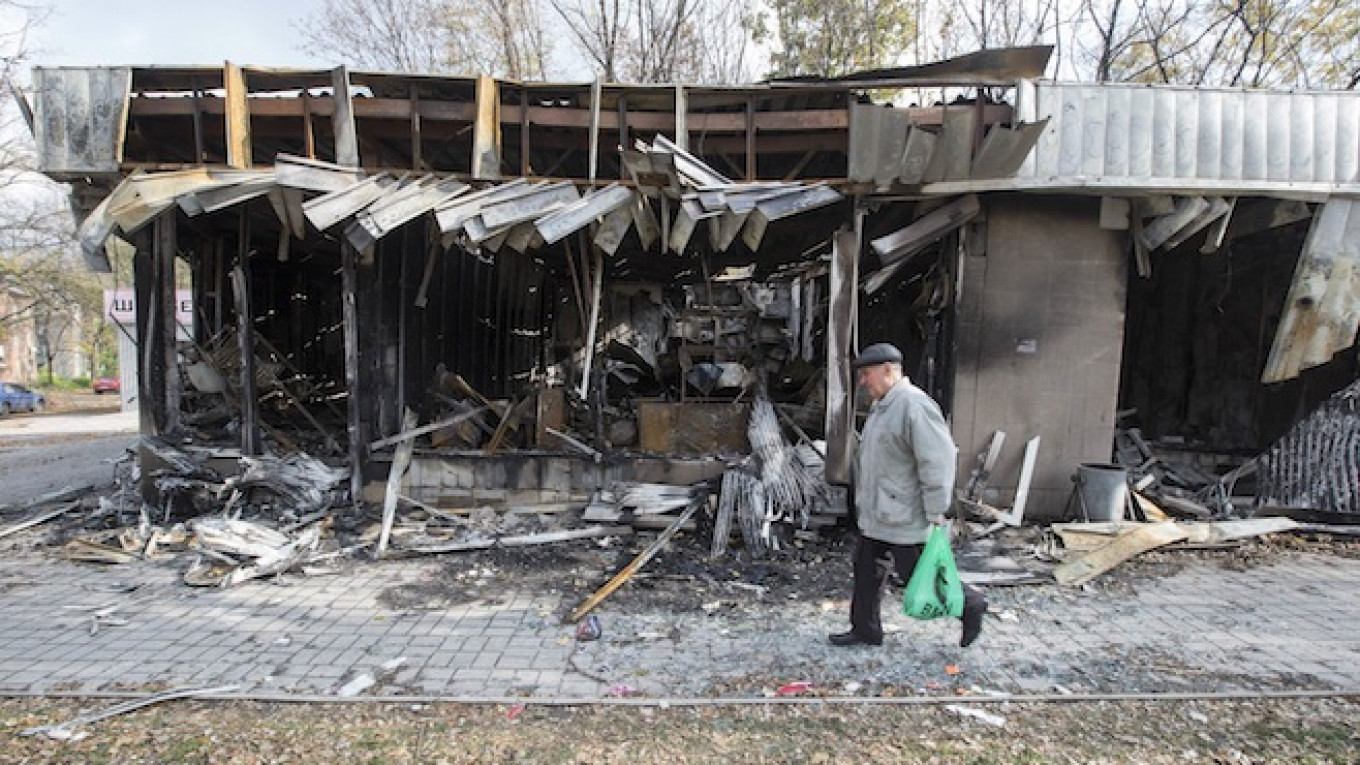DONETSK — Separatist leaders in east Ukraine accused President Petro Poroshenko on Wednesday of violating a peace deal by deciding to suspend a law giving their regions a "special status" and signaled they would no longer abide by it.
The self-proclaimed Donetsk and Luhansk people's republics in the Donbass region said the decision undermined a protocol agreed at talks on Sept. 5 in the Belarussian capital, Minsk, under which a cease-fire went into effect in east Ukraine.
Poroshenko, who accuses the rebels of violating the Minsk agreement by holding leadership elections on Sunday, said Tuesday that he wanted parliament to scrap the law offering "special status" to the eastern regions.
The law would have given Donetsk and Luhansk limited rights to run their own affairs and shield separatist fighters from prosecution.
"Kiev's cancelation of the special status for Donbass causes serious damage to the Mink peace process," the pro-Russian separatists said in a joint statement.
Signaling they believed this nullified the Minsk agreements, they added: "The DNR and LNR cannot act on the basis of a document from which Poroshenko has removed fundamentally important points."
They said they were ready to renegotiate the Minsk agreement, intended to help end a conflict in which more than 4,000 people have been killed in eastern Ukraine since the separatists rose up against Kiev's rule in mid-April.
Poroshenko has said he will propose a new law to provide a "special economic zone" for the Donbass region and set a new date for hoped-for Ukrainian-run local elections, originally planned for early December.
The crisis in Ukraine has caused the biggest rift in relations between Russia and the West since the end of the Cold War.
A Message from The Moscow Times:
Dear readers,
We are facing unprecedented challenges. Russia's Prosecutor General's Office has designated The Moscow Times as an "undesirable" organization, criminalizing our work and putting our staff at risk of prosecution. This follows our earlier unjust labeling as a "foreign agent."
These actions are direct attempts to silence independent journalism in Russia. The authorities claim our work "discredits the decisions of the Russian leadership." We see things differently: we strive to provide accurate, unbiased reporting on Russia.
We, the journalists of The Moscow Times, refuse to be silenced. But to continue our work, we need your help.
Your support, no matter how small, makes a world of difference. If you can, please support us monthly starting from just $2. It's quick to set up, and every contribution makes a significant impact.
By supporting The Moscow Times, you're defending open, independent journalism in the face of repression. Thank you for standing with us.
Remind me later.


